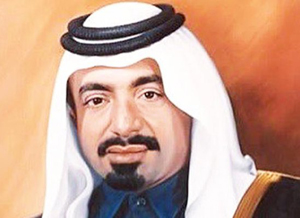Dubai, May 26: Business activities will reopen from 6am to 11pm as of Wednesday, May 27, across the emirate, it was announced on Monday.
The announcement of reopening business activities followed a virtual meeting of Dubai’s Dubai’s Supreme Committee of Crisis and Disaster Management chaired by Sheikh Hamdan Bin Mohammed Bin Rashid Al Maktoum, Crown Prince of Dubai and Chairman of the Executive Council.
The virtual meeting was also attended by Sheikh Maktoum Bin Mohammed Bin Rashid Al Maktoum, Deputy Ruler of Dubai, and Sheikh Mansour Bin Mohammed Bin Rashid Al Maktoum, Chairman of the committee and members of the committee.
The gradual reopening of business activities in Dubai will take place from the fourth day of Eid Al Fitr, Wednesday, May 27. Once the announcement comes into effect, there will be no restrictions on movement between 6am and 11pm.
The decision followed a comprehensive assessment of the committee’s reports, various health and socio-economic aspects and a thorough review of the COVID-19 situation. International guidelines for co-existing with COVID-19 were also taken into consideration before making the decision. The new measures are aimed at adapting to the COVID-19 situation without disrupting activity in vital sectors while strictly observing precautionary measures including wearing of face masks, observing minimum physical distancing of two metres, use of sanitisers and regular handwashing with soap and water for 20 seconds.
Sheikh Hamdan stressed on the need for Dubai authorities to further raise community awareness about precautionary measures. Highlighting Sheikh Mohammed’s statement “Everyone is responsible”, he said the community should understand the importance of strictly following preventive steps. Fully adhering to guidelines is key to restoring normal life, he added.
“We are aware of the pressures many sectors are facing because of the repercussions of the COVID-19 pandemic. The UAE society has high levels of resilience to any crises and challenges. We have been following the severe impact of the COVID-19 outbreak on countries around the world. What makes us different is our ability to deal positively with changes and our agility. We have all the elements necessary to adapt to these challenging circumstances. I am confident that all members of the society will come together to overcome this crisis as soon as possible,” Sheikh Hamdan said.
During the meeting, Sheikh Hamdan was briefed about the latest developments related to the crisis and the readiness of various sectors in Dubai, mainly the healthcare sector, to deal with any scenario in the upcoming period.
Recent proactive measures have reinforced Dubai’s ability to deal with any unforeseen situation. The emirate has enhanced its hospital capacity by joining hands with the private sector and set up a fully equipped field hospital in Dubai World Trade Centre, which can accommodate up to 3,000 beds.
Sheikh Hamdan was also briefed on the potential capacity of the field hospital at Dubai Parks and Resorts, which was built under the directives and with the generous support of His Highness Sheikh Mohamed Bin Zayed Al Nahyan, Crown Prince of Abu Dhabi and Deputy Supreme Commander of the UAE Armed Forces. The 29,000 square metre hospital set up by the Abu Dhabi Health Services Company (SEHA) can accommodate up to 1,200 patients.
Sheikh Hamdan also reviewed preparations to gradually reopen various spheres of life while maintaining stringent precautionary and preventive measures including physical distancing, wearing of face masks, use of sanitisers and prevention of congestion and crowding. Protective measures also include guidelines on social customs and behaviour for members of the community, especially with regard to family visits.
Sheikh Hamdan was also briefed on the preparedness of key authorities in Dubai to manage the next phase, including Dubai Health Authority (DHA), COVID-19 Command and Control Centre (CCC), Dubai Police, State Security Department, Dubai Civil Defence, Dubai Ambulance, Dubai Municipality, Roads and Transport Authority (RTA), Department of Tourism and Commerce Marketing, the Department of Economic Development in Dubai (DED), Government of Dubai Media Office (GDMO) and other government entities whose efforts are key to maintaining the progress achieved in containing the COVID-19 pandemic.
Sheikh Hamdan called on all key organisations to intensify monitoring to ensure institutions, economic sectors and the public comply with all precautionary guidelines. He expressed his appreciation for the efforts of the National Emergency Crisis and Disaster Management Authority (NCEMA) and the Ministry of Health and Prevention. He also expressed his appreciation for the efforts of the Supreme Committee of Crisis and Disaster Management and all local and federal authorities to combat COVID-19. The Crown Prince affirmed that the safety and security of citizens and residents remain the highest priority of the UAE’s leadership.
The latest announcement comes as the Dubai government continues its efforts to ensure the highest level of safety for members of the community with the support of various entities. Its key recent measures have included intensified sterilisation at various areas and facilities and increased COVID-19 tests in densely populated areas to facilitate early detection of cases and isolation of people testing positive.
Dubai has deployed state-of-the-art equipment to support medical staff in conducting widespread tests. These have included tests for critical segments like people of determination and the elderly. The emirate has also enhanced monitoring of various entities to ensure compliance with precautionary measures and imposed fines on individuals and entities violating guidelines. Additionally, the Government of Dubai launched urgent economic measures to support sectors most affected by the pandemic including a Dh1.5 billion economic stimulus package introduced in March to ease the crisis’s financial impact on small and medium enterprises.
 Qatar to observe three days of mourning after the former emir, who ruled for more than 20 years, passed away at 84.
Qatar to observe three days of mourning after the former emir, who ruled for more than 20 years, passed away at 84.





Comments
Inna Lillahi Wa Inna Ilaihi Rajivoon. A great leader. May Allah Grant him Jannathul firdous. Ameen
Add new comment